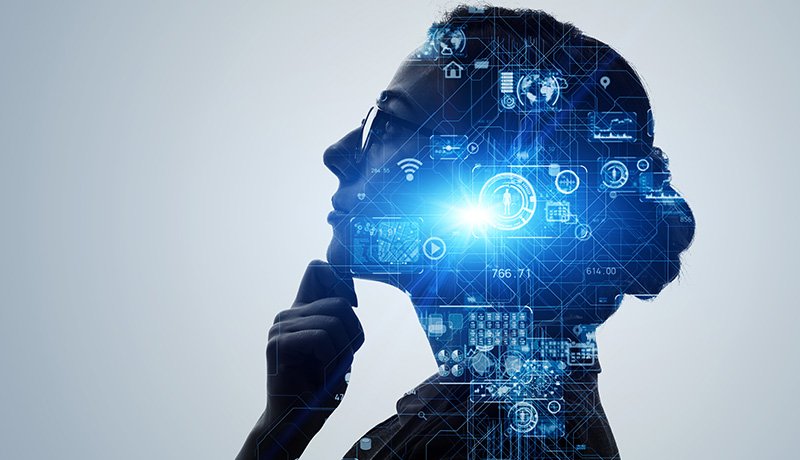Coach's VIEW is a business column authored by executive coaches in COACH A, aimed at providing valuable insights and effective approaches for leveraging coaching to foster organizational and leadership development. The column draws on the latest coaching trends and data, as well as insights from notable global publications on coaching.
Could we Evolve Our Communication Skills in Times like Now?

Even with the start of a new year, the spread of COVID 19 continues unabated. Remote work is encouraged, people are confined to their homes, and opportunities for people to interact with each other in real life are decreasing.
The emergence of the new virus, which has triggered major changes in society, has given me an opportunity to rethink the importance of communication.
The Body as a High Performance Sensor
The other day, I watched a TV program that introduced various experiments on human senses, especially skin functions (*1). One of the experiments was to see if there was a difference in the level of emotion between an animated movie with audio information in the range of sounds that the human ear can detect and a movie with audio information in other ranges. They found that the latter provided a greater emotional impact than the former.
People listen to sounds not only with their ears, but also with their skin, and feel the rich range of sounds that can not be detected with their ears. In other words, we use our entire body as a high-performance sensor to communicate with the outside world.
However, we are now in a situation where we have to avoid contact with others as best as we can in order to avoid the spread of COVID-19 viruses. Communication with our employees and clients has also become "through the screen". Having said that, COVID-19 is making it difficult for us to utilize the full potential of our high-performance sensors. It is as if COVID-19 is plotting to reduce our ability to communicate.
I wonder if we can take advantage of this situation and further increase the sensitivity of our sensors rather than succumbing to the attempts of COVID-19. Regardless of whether we are in the real world, the two-dimensional world through a screen, or the voice-only world, what kind of world would open up if we could sharpen our five or six senses in order to improve the accuracy of our high-performance sensors and acquire the ability to sense the reality of what is happening to others?
Seeing, Hearing, and Touching
One of the most major skills in coaching is the concept of "acknowledgement". The root of the word "acknowledge" is "to recognize what one knows," and its noun term, "acknowledgement," refers to the words and actions that express it. For example, greeting and gratitude with words and actions are "acknowledgements". Saying hello and thanking someone is an act of acknowledgement which recognizes the presence of the other person. In other words, "acknowledgement" has the meaning of "recognizing the existence of the other person."
When people feel that they are always being observed and that their changes are being recognized by other people, they are more likely to trust them, which as a result, gives them more energy and encourages them to move forward.
A friend of mine, who is a pediatrician, has recently been hearing often from a number of mothers of infants, "My child has become so spoiled that he will not stay away from me even for a moment. I'm afraid that if this continues, my child will not be able to become independent from his parents."
My friend said, "Before COVID-19 situation, children were exposed to a lot of people at kindergartens and schools. Now, they have no such opportunities physically, and they are more focused on their mothers. That's why I want mothers to take good care of their children." She also said, "Actually, the psychological situation is not so different for adults"
In the quote by Mamoru Itoh, founder of COACH A, "Love is seeing, hearing, and touching" (*2). The word "love" here can be replaced with "acknowledgement," which I referred to earlier. This is what the child obtains by being in contact with others. It was probably love, and a sense of security that came from being acknowledged as "it is okay for you to be here."
If it is the same for adults, we should "see, hear, and touch" the other person by fully utilizing our five and six senses, even if it is only digitally processed screen and audio information. Even if you are physically far away from the other person, you can convey to the person on the other side that you are seeing, hearing, and touching them.
During the time when there was no Internet, you may have written letters to your loved ones abroad. In the world of Manyoshu (Japan's oldest anthology of poems), we thought of that person, spun a poem, and sent it as a poem. Even if we are separated from each other, we can communicate as if we are seeing, hearing, and touching each other. In other words, I believe that the amount of time we spend thinking about the other person is what can be conveyed to them.
Even though we can not touch each other through a screen, we can spend time thinking about the other person. I believe that this will be conveyed to the other person through your presence.
How to Create a New Relationship
Even if the COVID-19 pandemic passes, it does not mean that the same world as before will return. There is a possibility that a world with a reduced sense of reality will become normal, such as the normalization of remote work.
If we come to be able to see, hear, and touch each other even through screens, we may find ourselves in a world where we feel more connected than ever before. That future world could be much more enriched in spirit than before.
Starting tomorrow, let us try facing the person we are looking at through the screen with an awareness of seeing, hearing, and touching. You may see and hear things differently than before.
【Reference】
*1 NHK "Naoki Matayoshi's Heureka! Do you know that the skin knows everything?” broadcasted on May 13, 2020.
*2 Mamoru Itoh, The Book for Loving, Discover 21, Inc., 1996.
*Regardless of profit, non-profit or intranet, secondary use such as copying, diversion, selling etc. is prohibited without permission.
Language: Japanese

